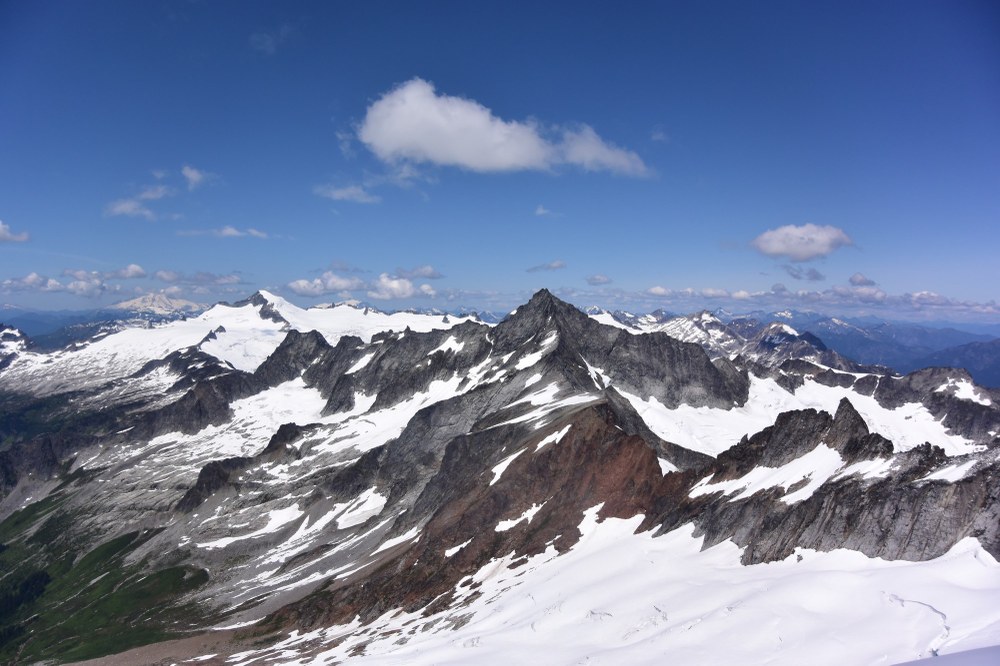
It feels strange to agree with a rule and yet hate it: recently, following closures of National and State Parks across the U.S., Washington and Oregon indefinitely shut down access to 24 million acres of established outdoor recreation areas. Although I’d already ceased my own outdoor activities outside Seattle city limits in the wake of the COVID-19 epidemic—and fully support the decision to close public lands—the finality of this announcement is heartbreaking.
As both a backcountry enthusiast and an infectious disease scientist who understands that extreme social distancing measures are necessary to combat this pandemic, my emotions cover both ends of the spectrum. I know why we must all stay home, but I feel real grief at losing the freedom of escape to the mountains.
I realize this distress comes from a position of enormous privilege: those living in the middle of the country, inner-cities, or in poverty might not have ever had the option to get outside, and I’m fortunate to be able to work from home and have basic needs met during this crisis. But the loss of the mountains and trails, and their inherent anxiety-reducing magic, feels acutely dystopian at a time where I crave an escape outdoors more than ever.
Like most athletes, exercise, especially outdoors, is what I do when all else falls apart. But this time, that coping mechanism has been taken away, and we have to look elsewhere.
Finding solace outside of the mountains
I’m somewhat prepared for having the crutch of the outdoors kicked away: an injury and chronic nerve pain knocked me out of the outdoor arena for much of 2019. Abandoning my outdoor passions triggered a complete identity crisis. For nearly thirty years, I'd centered my own value, self-image, and happiness around physical achievements, and when could no longer lead with my athleticism, I felt empty and worthless.
As we all do under duress, I adapted and learned to focus on what I could do, whether it be modified, easier versions of my favorite outdoor activities or another passion altogether. I forced myself to stay busy with the physical activity I could do (walking my dog, physical therapy) as well as other interests that were often neglected (knitting, playing trumpet).
Reallocating your joy is a skill that takes practice. At first I faked happiness with my second-tier activities, but soon I realized that I actually was happy, despite the ever-constant ache for the mountains.
It’s mentally and physically taxing to be chronically injured, and I don’t recommend it, however I emerged with a more complete emotional toolkit. I finally understood what we all know to be true but never fully accept until we’re forced: our athletic abilities or access to the outdoors aren't guaranteed, so we'd better not rely on them as our only source of happiness or stress relief. Right now the mountains can't directly help me cope with the pandemic, but I'm choosing to focus my energy instead on what I can contribute to the environment and our community.
Tying Personal Loss to the Public Land Heist
Looking outside myself, I’m contemplating how the temporary loss of the outdoors is a microcosm for the impending, irreversible loss of wild spaces that could occur due to public land destruction and the climate crisis. While environmentalism has taken a backseat to the (arguably) more-urgent thread of global pandemic, we must acknowledge that the pain we feel from losing access to wild spaces now could become permanent if we don't act. This is a heavy thought to process while we’re already overwhelmed, but one I feel is worth acknowledging if you value the outdoors.
Under normal circumstances, it’s very easy to be too busy enjoying the mountains to make time to protect them, but now that we cannot travel outside our homes, this is a great chance to allocate energy towards conservation. Email your local environmental nonprofits, and be sure to check out the advocacy opportunities listed on the Legislative Trail Map, created by The Mountaineers.
You can also research active pro-environment bills in your area, contact your reps and press them to support this legislation, and urge your friends to do the same. Making a few calls from your bed or contributing virtually to an environmental campaign can have a big impact!
It hurts to be denied the outdoors in a time of crisis, but we shouldn’t forget that the outdoors are facing a crisis of their own, and now is the perfect time to dedicate ourselves to environmental activism as we head into election season.
There’s no denying that we’re facing a challenge of a generation, and being forced to stay within city limits when we’d like to escape to nature only compounds our collective stress. But let’s all use this situation to reevaluate our relationship with outside recreation so that we emerge from this pandemic with not dependence on, but appreciation for, the outdoors-and a greater willingness to protect them.
 Brianna Traxinger
Brianna Traxinger